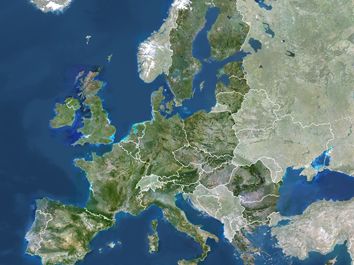
Institute of Intercultural and International Studies
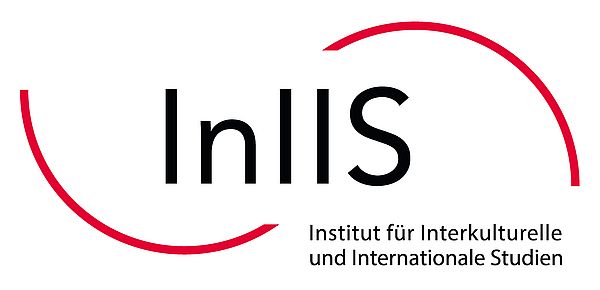
The InIIS is a research institution at Faculty 8 (Social Sciences) of the University of Bremen and one of the supporting institutes of the Collaborative Research Center 1342 "Global Development Dynamics of Social Policy" and the MA program "International Relations: Global Governance & Social Theory" (MAIR). It combines the political science sub-disciplines of International Relations and European Politics with Political Theory and, with its transnational research profile, represents one of the social science research and teaching foci at the University of Bremen.
InIIS News

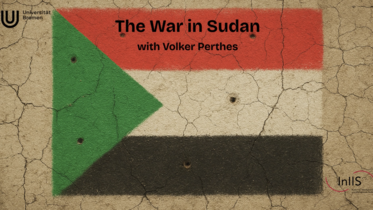
InIIS InSIGHTS on Sudan War
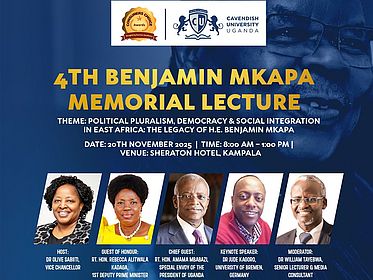
Jude Kagoro delivering 4th Benjamin Mkapa Memorial Lecture
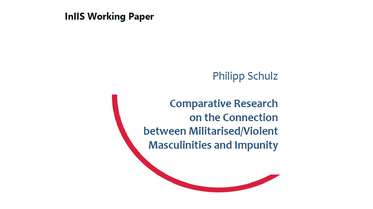
New InIIS Working Paper
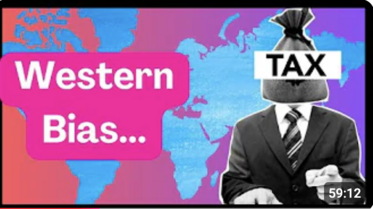
Podcast with Philipp Genschel
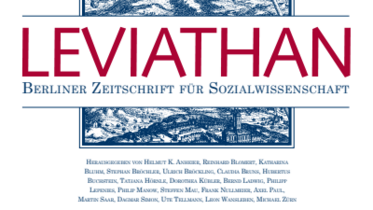
"Somalia als Schimäre"
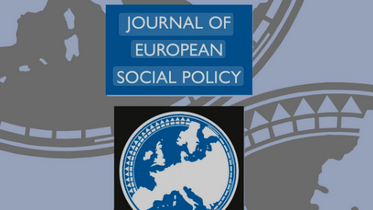
Party ideology and care policy

Masculinities and the WPS agenda of the UN
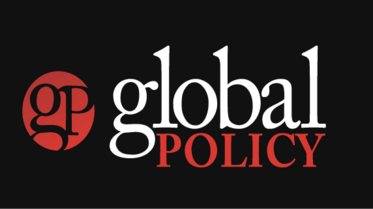
New article on China-EU Climate Cooperation
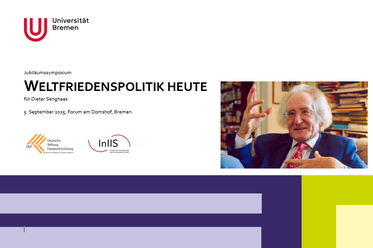
Jubiläumssymposium "Weltfriedenspolitik heute" in Bremen
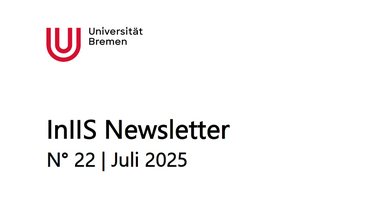
Neuer InIIS Newsletter erschienen
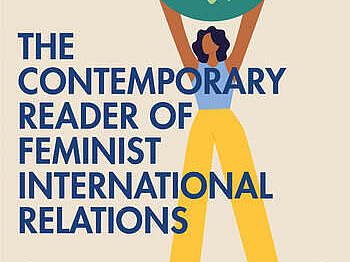
Male Survivors of Sexual Violence
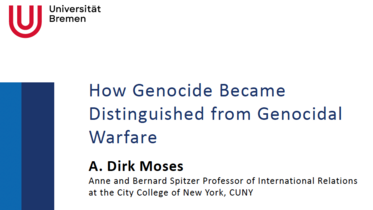
Dirk Moses, "How Genocide Became Distinguished from Genocidal Warfare"

"The Judicial Coup, the Gaza War and Israeli Politics & Society"
![[Translate to English:] [Translate to English:]](/fileadmin/_processed_/6/2/csm_Ouma_3c8e4143a1.png)
Afrika und die globale Rechte
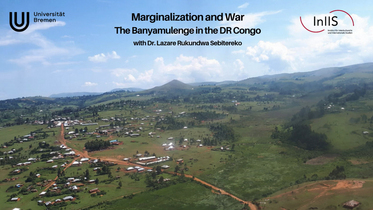
InIIS InSIGHTS with Lazare Rukundwa
![[Translate to English:] [Translate to English:]](/fileadmin/_processed_/f/6/csm_Ausschreibung_Rabe_44b24b27b0.png)
Job Offer: Doctoral Researcher (65%)
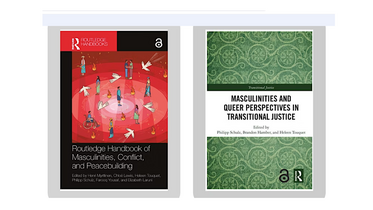
Joint Book Launch "Gender, Masculinities and Peacebuilding"
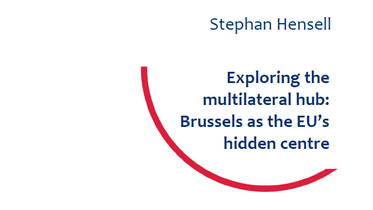
New InIIS Working Paper
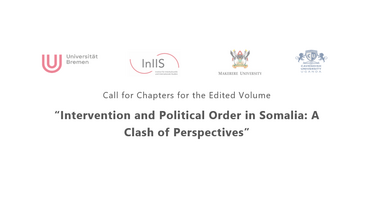
Call for Chapters - Intervention and Political Order in Somalia

"What we talk about when we talk about ‘the elite’ in populism studies"

"Diverse sexual orientations and gender identities in conflict and displacement"

"Rural Women’s Economic Empowerment in the Maghreb: A Materialist Critique"
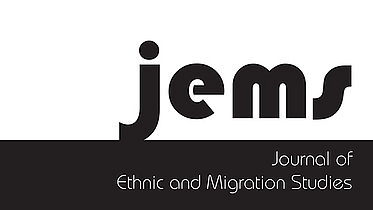
"Forced Migrant Men as Actors of Care"

Imperiale Modernisierung. Der Wandel des chinesischen Entwicklungsmodells
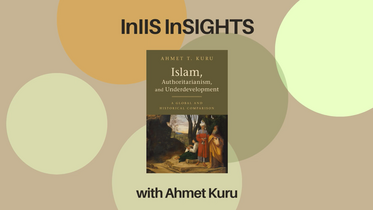
InIIS InSIGHTS with Ahmet Kuru
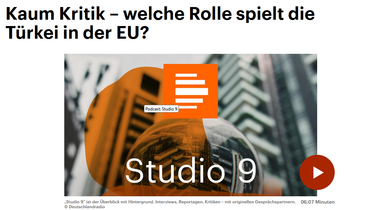
DLF-Kultur-Interview mit Roy Karadag
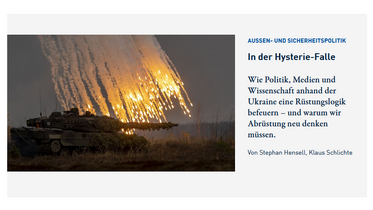
Stephan Hensell und Klaus Schlichte in der IPG
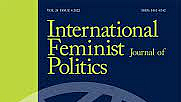
“How did you become interested in this?” On personal and academic entanglements
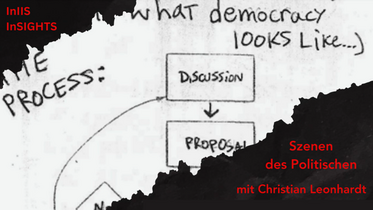
InIIS InSIGHTS mit Christian Leonhardt
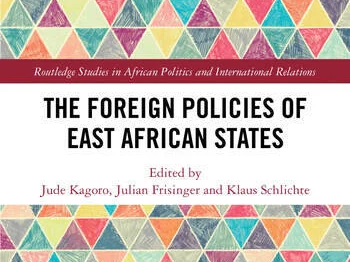
Book Launch in Kampala (30th January)
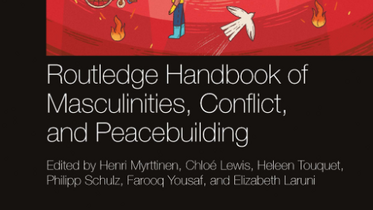
© Routledge
Routledge Handbook of Masculinities, Conflict and Peacebuilding

"What is ... Love and Care in International Relations?"
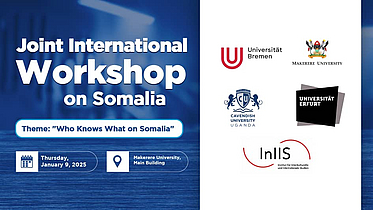
"Who Knows What on Somalia?", Joint International Workshop at Makerere University (9th January, 2025)
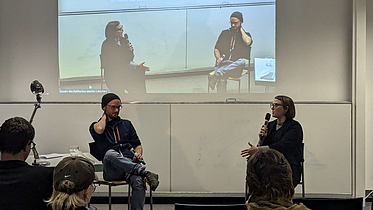
Buchvorstellung von "Szenen des Politischen"
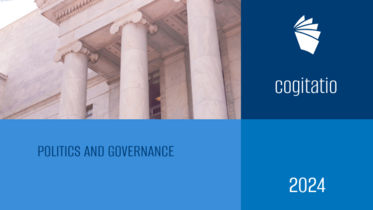
"Monetary‐Fiscal Interactions and the Problem of Outdated Commitments: Eurozone Crisis Versus Covid‐19"

Exhibition "The Politics of Love" at Kunsthaus Hamburg (30.11.2024 - 2.2.2025)
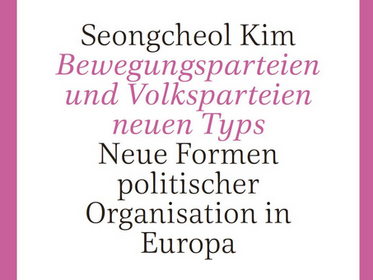
Neue Monographie von Seongcheol Kim
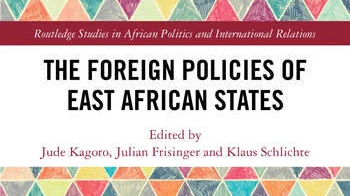
"The Foreign Policies of East African States" is now available
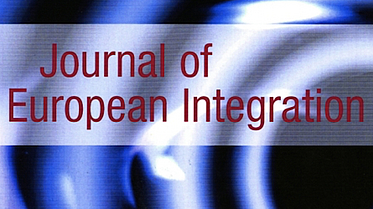
New Article on EU Policy Change towards China
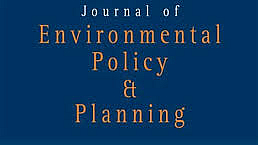
New publication on citizen action in Chinese environmental governance
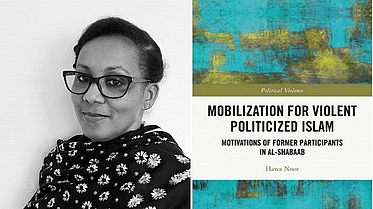
InIIS InSIGHTS episode on Kenyan Fighters for Al-Shabaab
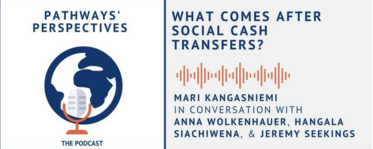
"Development Pathways" Podcast Episode with Anna Wolkenhauer

© Routledge
New Edited Volume "Masculinities and Queer Perspectives in Transitional Justice"

Studentische Hilfskraft gesucht zum 1. Dezember
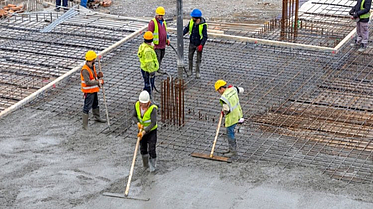
"Between the cracks: third-country posted workers"
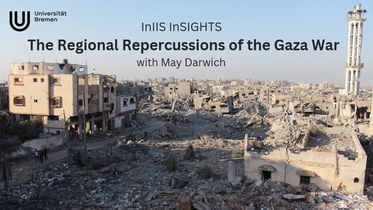
InIIS InSIGHTS episode on the regional politics of the Gaza War
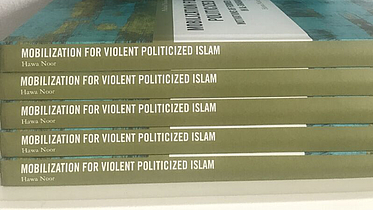
New Publication "Mobilization for Violent Politicized Islam" by Hawa Noor
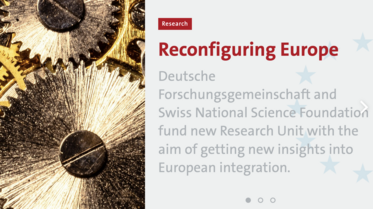
Four new PhD positions at InIIS
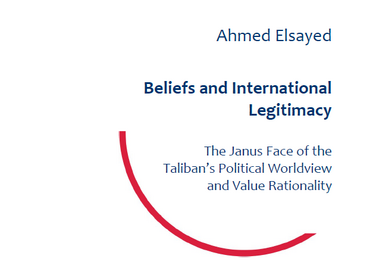
New Working Paper by Ahmed Elsayed
![[Translate to English:] [Translate to English:]](/fileadmin/_processed_/3/6/csm_ChinaGlobalSouth_f8635d977b.png)
Call for Papers: China’s climate cooperation with the Global South (Online Workshop)

Studentische Hilfskraft gesucht ab Oktober 2024
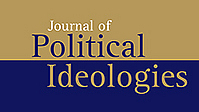
How populist and egalitarian are leftist parties in Europe?
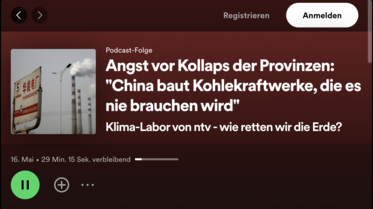
Barbara Pongratz im "Klima-Labor" Podcast von n-tv
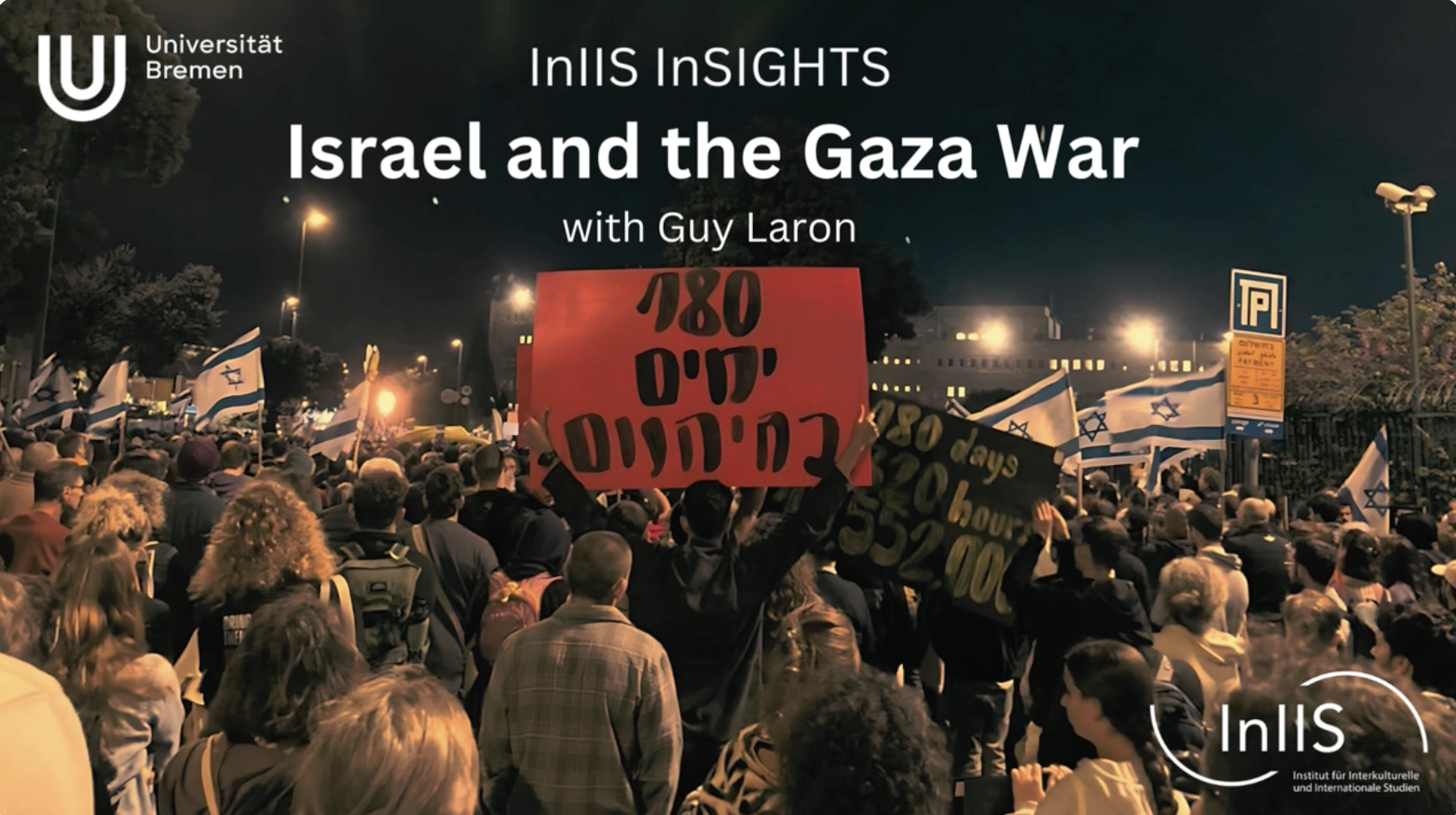
New InIIS InSIGHTS episode on the Gaza War
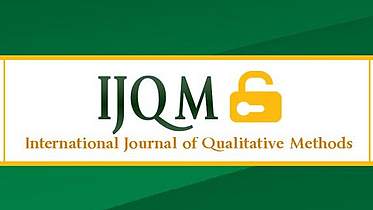
New article on accompanied field research in Uganda
![[Translate to English:] Veranstaltungsplakat](/fileadmin/_processed_/5/e/csm_Living-Archivs_Plakat_Bild_2f9400bdcf.jpg)
“Living Archives” Past and Present of Intersectional-Feminist Movements in Theory and Praxis
![[Translate to English:] Flagge der Europäischen Union](/fileadmin/_processed_/6/9/csm_Eusopaeische_Union_Flagge_5c818b47cd.jpg)
© Europäische Union https://european-union.europa.eu/principles-countries-history/symbols/european-flag_de
Lothar Probst: A right-wing wave in Europe? Comments on the outcome of the European elections
![[Translate to English:] [Translate to English:]](/fileadmin/_processed_/e/0/csm_dscf1178-940_745760101a.jpg)
Talk at InIIS: Yifei Li - Capacious Capacity. Conceptualizing the State in Chinese Environmental Governance
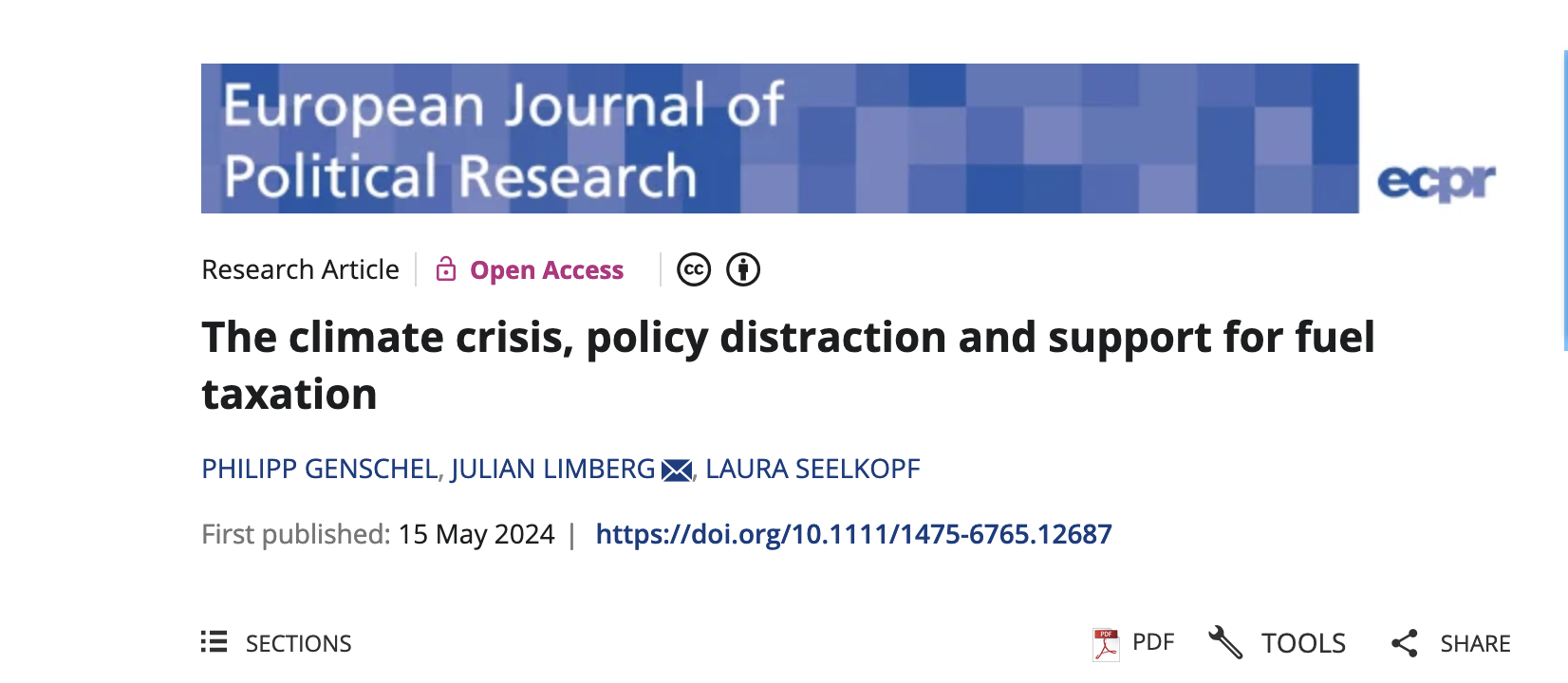
New article co-authored by Philipp Genschel on support for fuel taxation
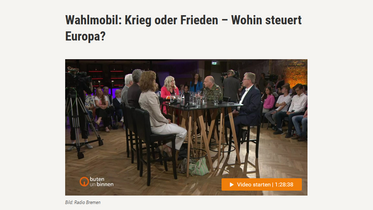
Wahlmobil "Krieg oder Frieden: Wohin steuert Europa?" mit Klaus Schlichte
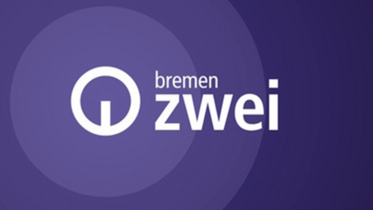
Bremen 2 Interview mit Roy Karadag zu studentischen Antikriegsprotesten
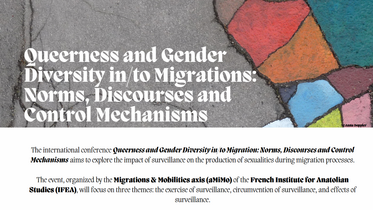
"Queerness and Gender Diversity in/to Migrations" Conference in Turkey (26 April 2024)
![[Translate to English:] [Translate to English:]](/fileadmin/_processed_/e/1/csm_FB08_INIIS_Logo_RZ_10ae1cf208.png)
Student assistant wanted from July 2024

New article on China's social credit system and its perception on Southeast Asia
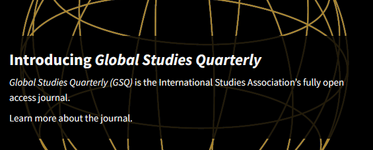
New article on love and care in insurgency groups
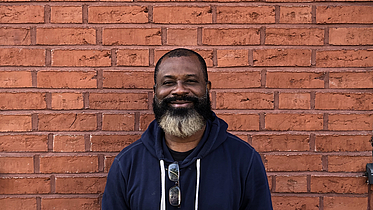
Deutschlands feministische Außen- und Entwicklungspolitik: Einschätzungen aus Abidjan
![[Translate to English:] [Translate to English:]](/fileadmin/_processed_/6/1/csm_logo-dfg_a6b898e23b.jpg)
Student assistant wanted for DFG research project
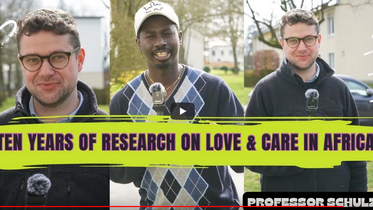
Love and Care in the midst of violence and conflict
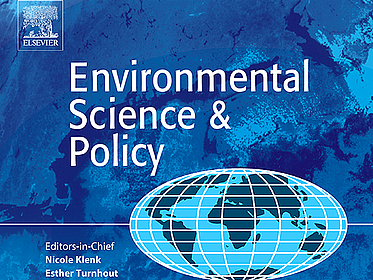
New Publication by Wiebke Rabe on ICT and environmental participation in China
![[Translate to English:] [Translate to English:]](/fileadmin/_processed_/3/e/csm_Neue_930a267db2.png)
Neuzugang am InIIS
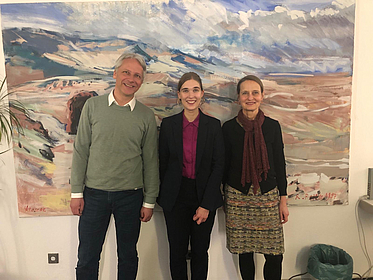
Christina Grabbe verteidigt Dissertation
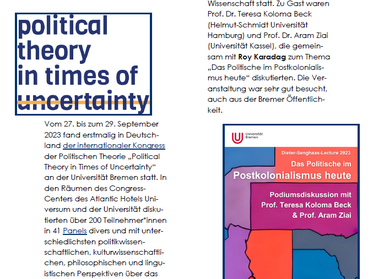
InIIS Newsletter (Januar 2024) erschienen
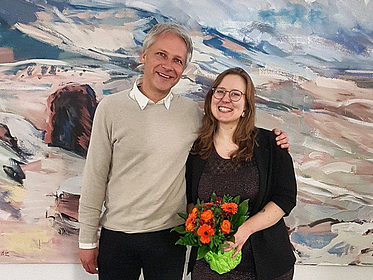
Josephine Assmus verteidigt Dissertation
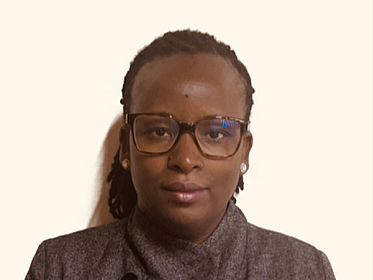
New InSIGHTS episode with Harriet Byarugaba

Neuerscheinung: "Eine gerechte Weltwirtschaftsordnung" von Alex Veit & Daniel Fuchs
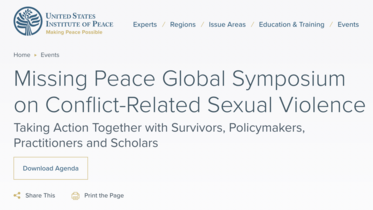
Pınar Erdem & Philipp Schulz attend the "Missing Peace Global Symposium" in Washington, D.C.
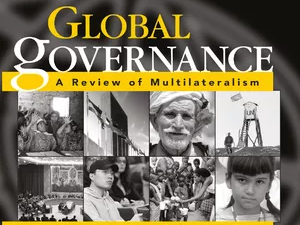
"Torn into the Abyss" - New article out by Dennis Niemann, David Krogmann & Kerstin Martens
![[Translate to English:] Logo InIIS](/fileadmin/user_upload/fachbereiche/fb8/fb8_iniis_upload/Aktuelles/FB08_INIIS_Logo_RZ.png)
Student assistant wanted from Dec, 1st
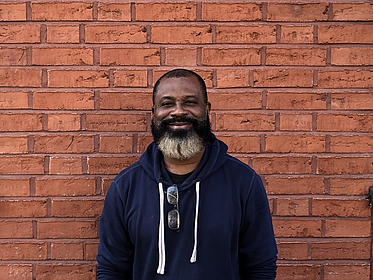
Philippe Kétouré neuer Gastwissenschaftler am InIIS
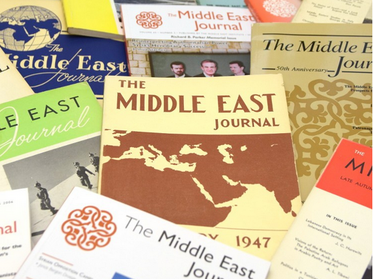
"From the Mountains to the Élysée" - New Article by Ahmed Elsayed
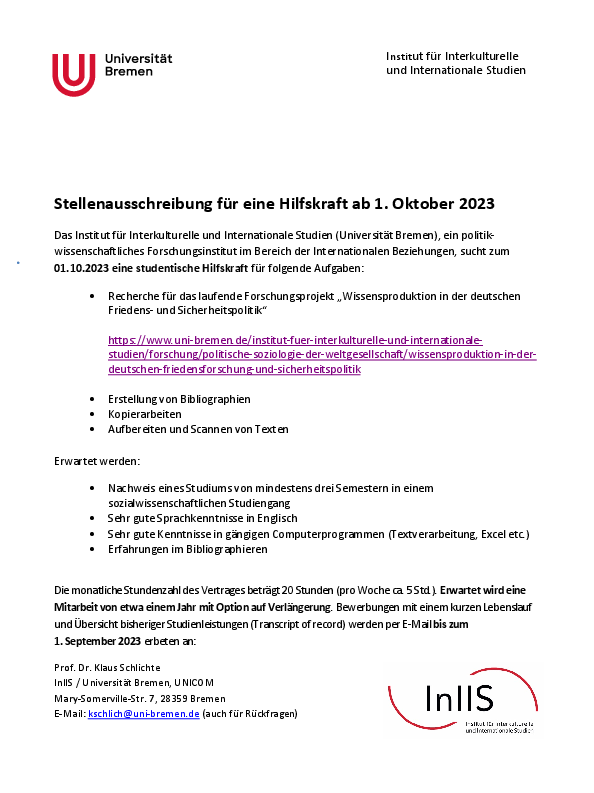
Studentische Hilfskraft gesucht zum 1. Oktober
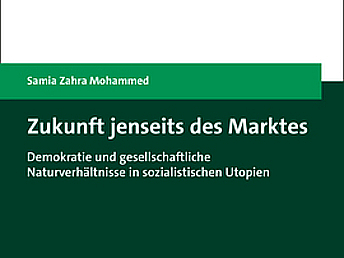
"Zukunft jenseits des Marktes" - Neue Monographie von Samia Mohammed

"Revenue, Redistribution, and the Rise and Fall of Inheritance Taxation"
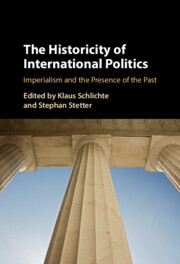
"The Historicity of International Politics. Imperialism and the Presence of the Past"
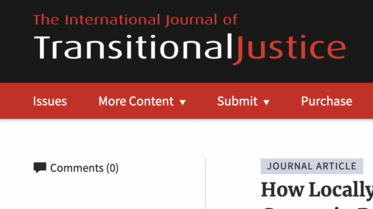
Victims' Groups in Post-Conflict Settings
![[Translate to English:] [Translate to English:]](/fileadmin/_processed_/3/e/csm_Foto_Pongratz_6bcf54e6eb.jpg)
New member Barbara Pongratz
![[Translate to English:] [Translate to English:]](/fileadmin/_processed_/9/6/csm_uncetainty-3_577a3f21d2.jpg)
Political Theory in Times of Uncertainty
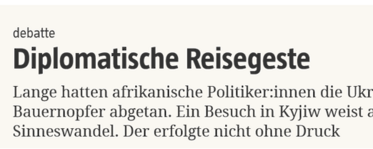
"Diplomatische Reisegeste" - Artikel von Alex Veit zu afrikanischer Diplomatie im Ukrainekrieg
![[Translate to English:] [Translate to English:]](/fileadmin/_processed_/9/3/csm_Bildschirmfoto_2023-07-06_um_20.56.56_b73e7fb7d7.png)
CRSV Observatory Podcast - Episode with Philipp Schulz
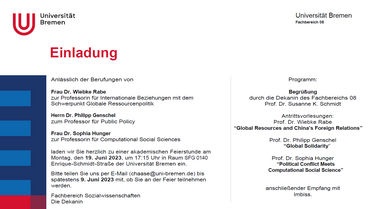
Antrittsvorlesungen von Wiebke Rabe & Philipp Genschel
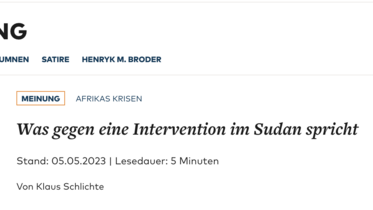
"Was gegen eine Intervention im Sudan spricht" - Ein Kommentar von Klaus Schlichte
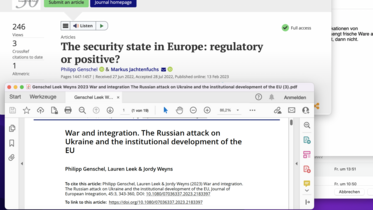
Two new articles by Philipp Genschel on European security institutions and the Ukraine War
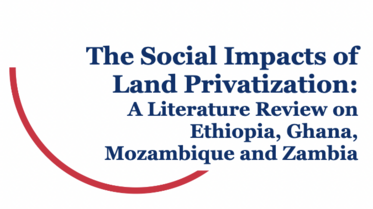
New InIIS Working Paper on land privatizations and their social impacts in Africa

"China's Provinces Go Global: Internationalization under Guided Autonomy": New book publication by Wiebke Rabe
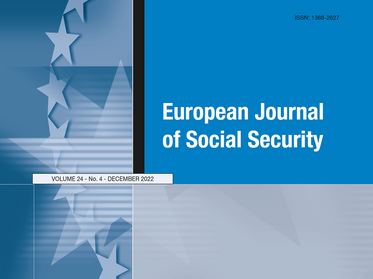
New open access article by Christina Grabbe on the positions of policymakers from Denmark, the Netherlands and Germany towards the free movement of workers and access to social security in the EU
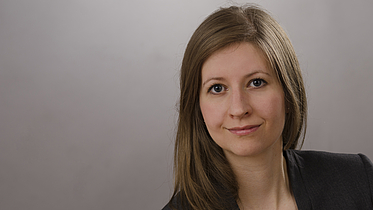
© Das gute Portrait
Wiebke Rabe neue Professorin am InIIS
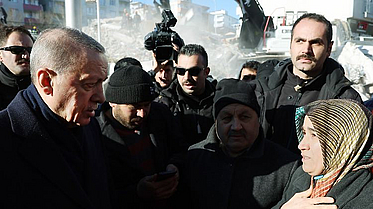
© dpa picture alliance
Interview mit Roy Karadag zum Erdbeben in der Türkei
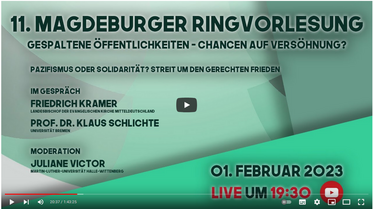
11. Magdeburger Ringvorlesung zu Ukrainekrieg mit Klaus Schlichte
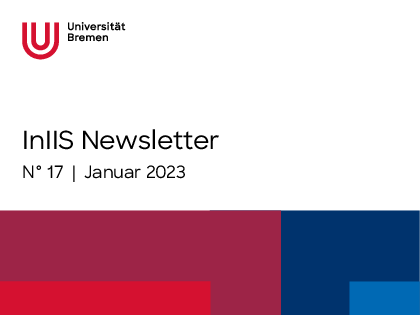
InIIS Newsletter XVII erschienen!
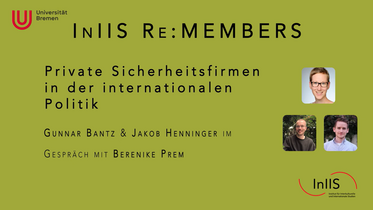
"InIIS Re:Members": Private Sicherheitsfirmen in der internationalen Politik" mit Berenike Prem
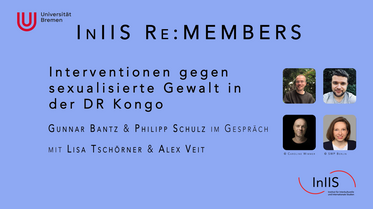
"InIIS Re:Members: Interventionen gegen sexualisierte Gewalt in der DR Kongo" mit Lisa Tschörner & Alex Veit
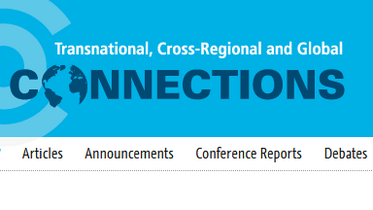
Katarina Kušić: "Land and human-soil relations in Southeast Europe" out in "Connections"
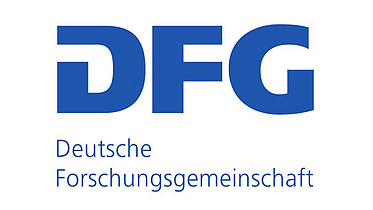
New Research Project at InIIS starting in June 2023: A Different Kind of War Story - Centering Love and Care in Peace and Conflict Studies
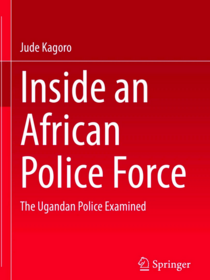
New book publication out by Jude Kagoro on Policing in Uganda
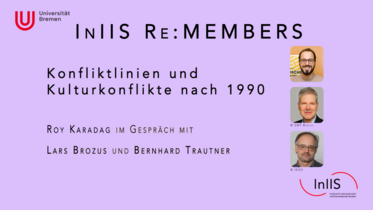
"InIIS Re:Members: Konfliktlinien & Kulturkonflikte nach 1990" mit Lars Brozus (SWP) und Bernhard Trautner (IDOS)
![[Translate to English:] [Translate to English:]](/fileadmin/_processed_/1/2/csm_DLF_c4d92ac8c3.png)
Martin Nonhoff bei Deutschlandfunk Kultur "Wortwechsel" zum Ausgang der Midterms in den USA
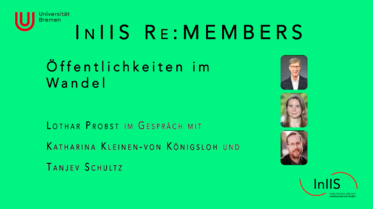
"InIIS Re:Members: Öffentlichkeiten im Wandel" mit Katharina Kleinen-von Königslow & Tanjev Schultz
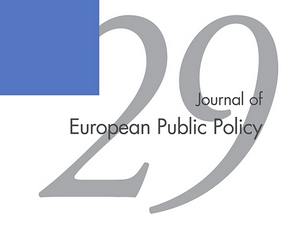
"EU free movement of people" by Michael Blauberger, Christina Grabbe & Ariadna Ripoll Servent

"InIIS Re:Members"-Reihe eröffnet

"Negative integration is what states make of it" by Susanne K. Schmidt & Michael Blauberger
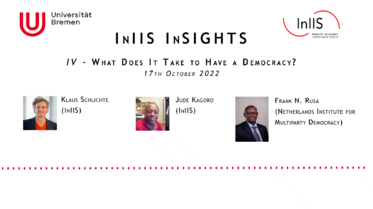
InIIS InSIGHTS IV - "What does it take to have a democracy?"
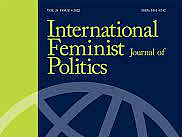
On inclusive approaches to gender-based violence
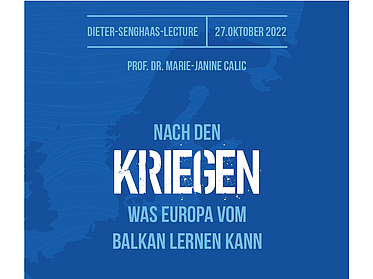
"Nach den Kriegen: Was Europa vom Balkan lernen kann"
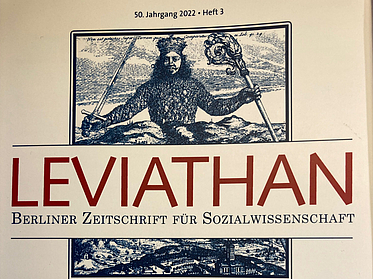
"3 x Ukraine: Zur Politischen Soziologie eines Angriffskriegs"
![[Translate to English:] Tagungsprogramm [Translate to English:] Tagungsprogramm](/fileadmin/_processed_/8/f/csm_Programm_Tackling_Emigration_in_EU_Member_States_8a208855af.png)
Tackling Emigration in EU Member States - The Welfare Dimension (6./7. Oktober 2022)
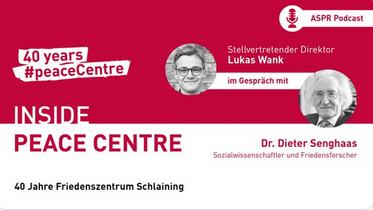
Inside Peace Center - Podcast mit Dieter Senghaas zur Geschichte der Friedensforschung
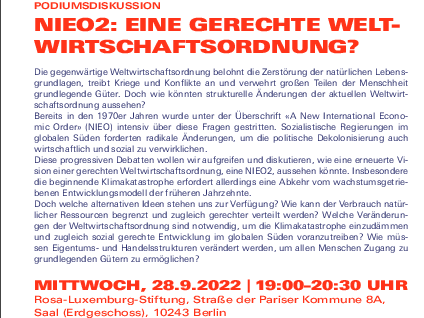
NIEO2: Eine gerechte Weltwirtschaftsordnung?
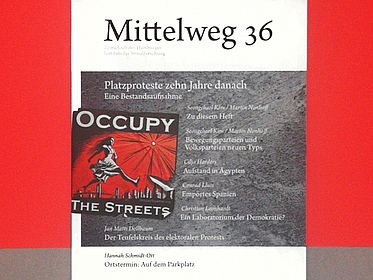
"Platzproteste zehn Jahre danach. Eine Bestandsaufnahme"
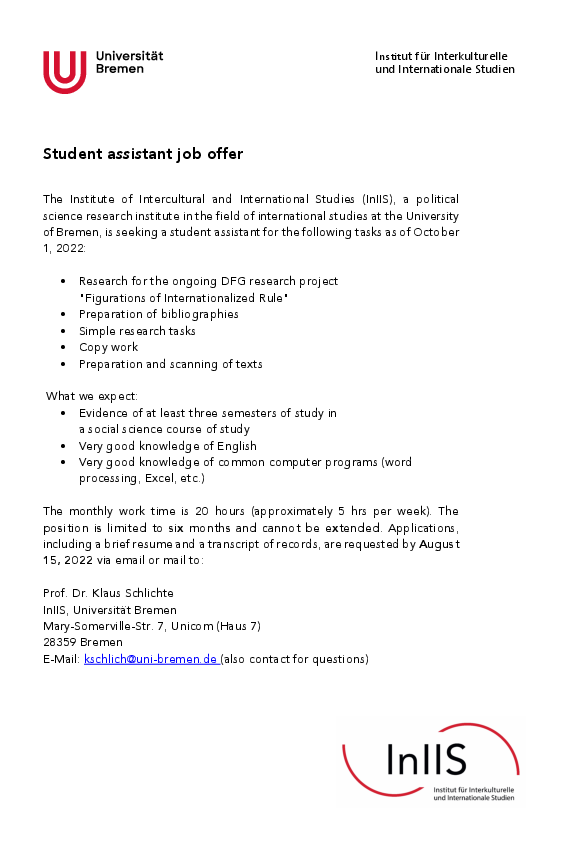
Student assistant job at InIIS

© George Koronaios, CC BY-SA 4.0
New research group on populism, radical democracy and square protests
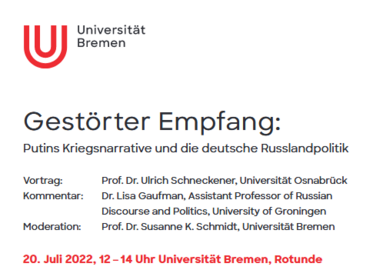
"Gestörter Empfang: Putins Kriegsnarrative und die deutsche Russlandpolitik"
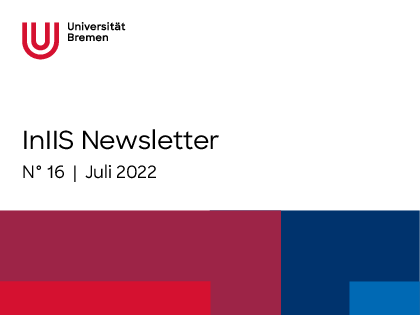
InIIS Newsletter No. 16 erschienen!
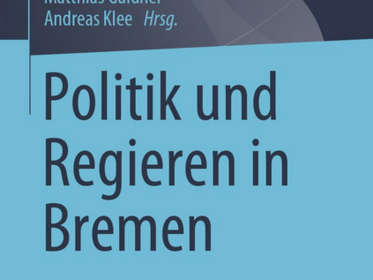
Buchvorstellung "Politik und Regieren in Bremen"
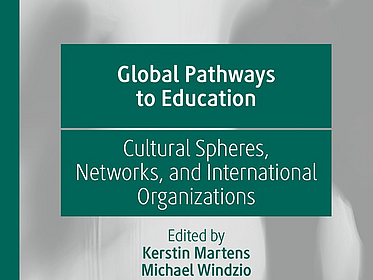
New edited volume "Global Pathways to Education" by Kerstin Martens & Michael Windzio
Call for Chapters: “Routledge Handbook of Masculinities, Conflict and Peacebuilding”
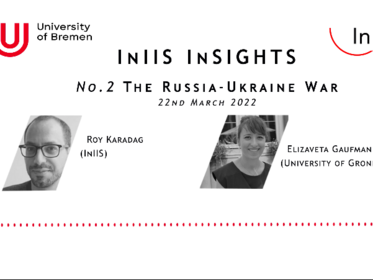
InIIS InSIGHTS No. 2 - The Russia-Ukraine War
"Transformative Effekte des Ukraine-Krieges"
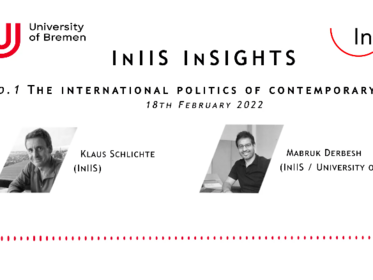
InIIS InSIGHTS No. 1 - The International Politics of Contemporary Libya
What we offer: our "Politische Sprechstunde"
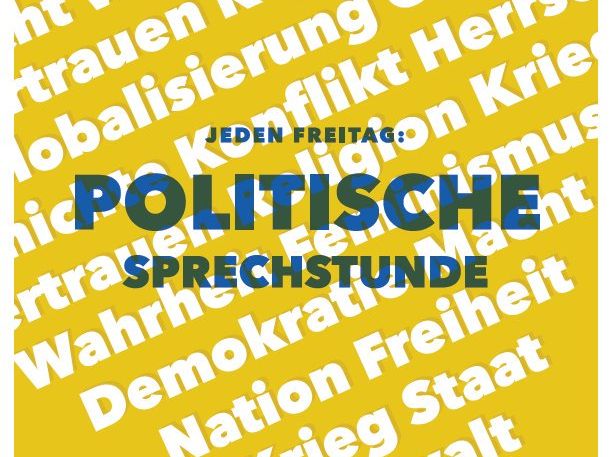
Do you have questions about current international political developments and crises? About the dynamics of interstate and civil wars, political uprisings and social upheavals? About the historical background of crises that are manifesting themselves today? Or even about powerful imaginaries of the future and their political potential? If you have such or related questions and are looking for a direct exchange on these themes, then feel free to take advantage of our weekly "Politische Sprechstunde"! Here you will receive background information on the topics you have chosen. In addition, you will receive literature suggestions and insights into ongoing social science debates to get a sense of how diverse such topics can be researched.
If you are interested in a Sprechstunde, simply make an appointment with our Roy Karadag (karadag@uni-bremen.de)! We offer these meetings and talks at our InIIS offices, virtually or quite classically over the phone.
What we teach: MA International Relations

The InIIS offers the English-language MA program "International Relations: Global Politics & Social Theory". The two-year program was originally conceived jointly with Jacobs University Bremen and has been reorganized by the InIIS teaching staff since 2022. It draws on a wide range of social science disciplines, topics and methods and provides a multi-perspective insight into the dynamics of global politics and transnational relations. We are particularly proud of the strong social-theoretical embeddedness of the program, which relies on diverse theoretical framings of political processes.
more
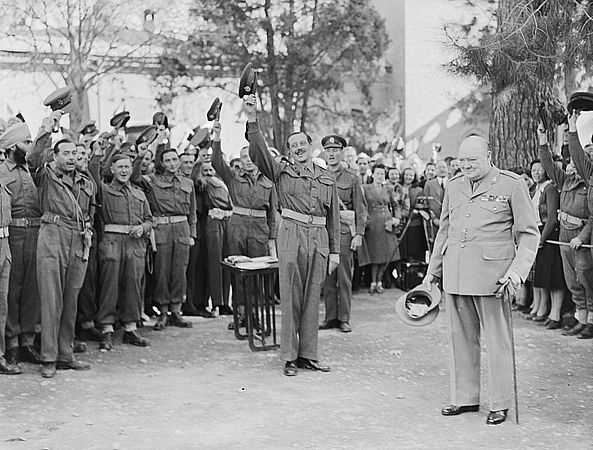
The program offers a theory-based understanding of international politics. With references to normative theories, global political economy, peace and conflict studies, and global history, it gives our students the necessary analytical tools to fathom the everyday life of global governance. It examines globalization processes, international conflict situations, principles of legalization and transnational social activism, doing so from the perspective of international political sociology. Thisl enables our students to actively engage in ongoing international debates on the future of democracy and capitalism, global orders, war and peace, and the power of ideas.
more

![[Translate to English:] Vereinte Nationen New York Vereinte Nationen](/fileadmin/user_upload/fachbereiche/fb8/fb8_iniis_upload/Un_cc.jpg)


